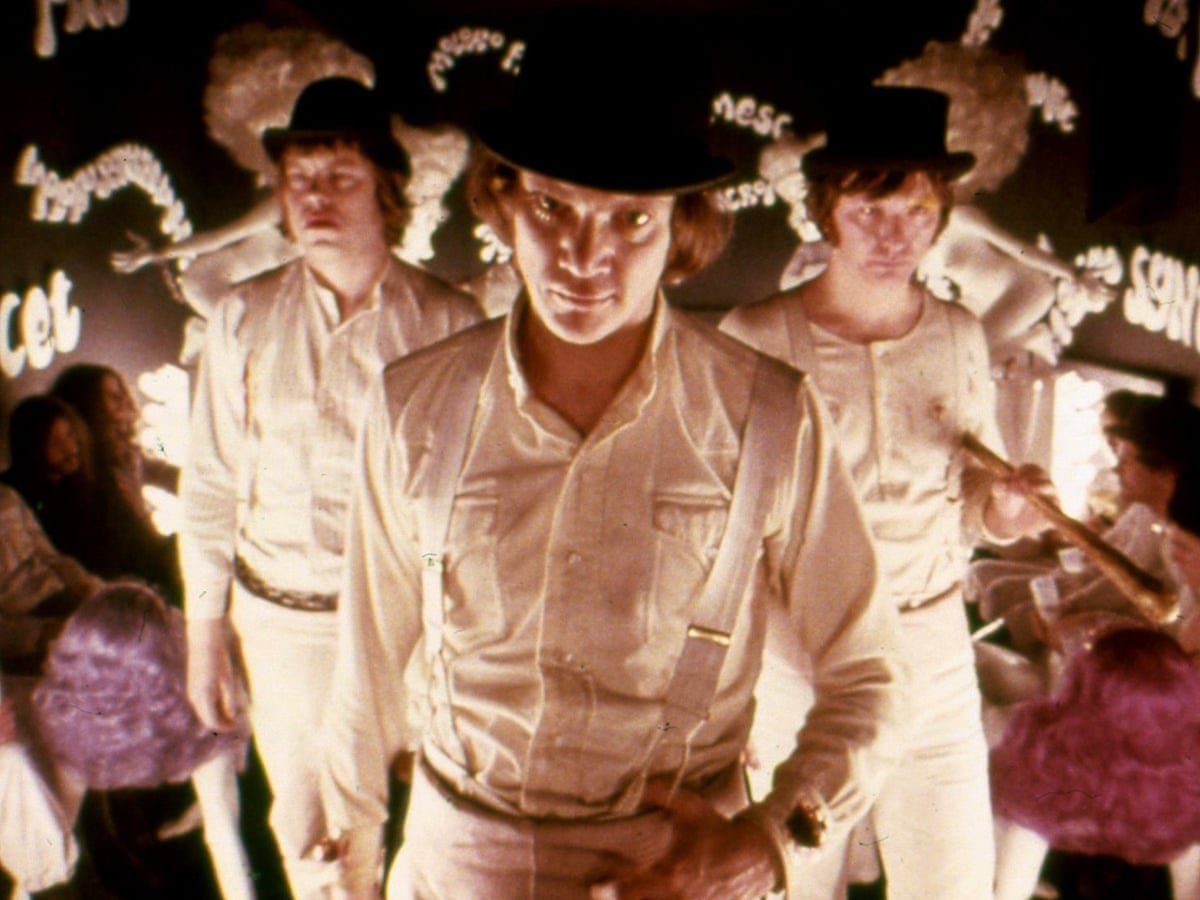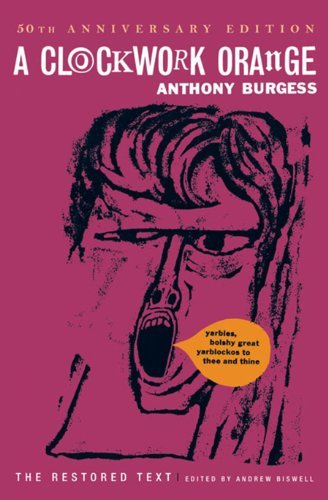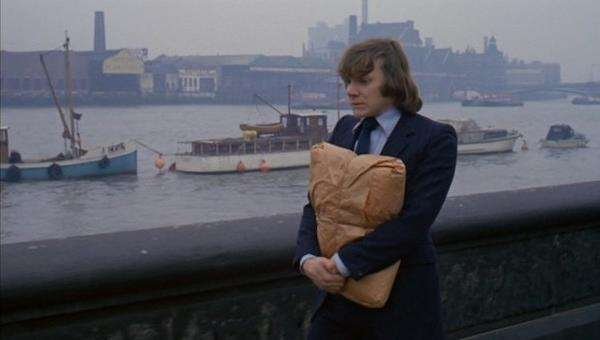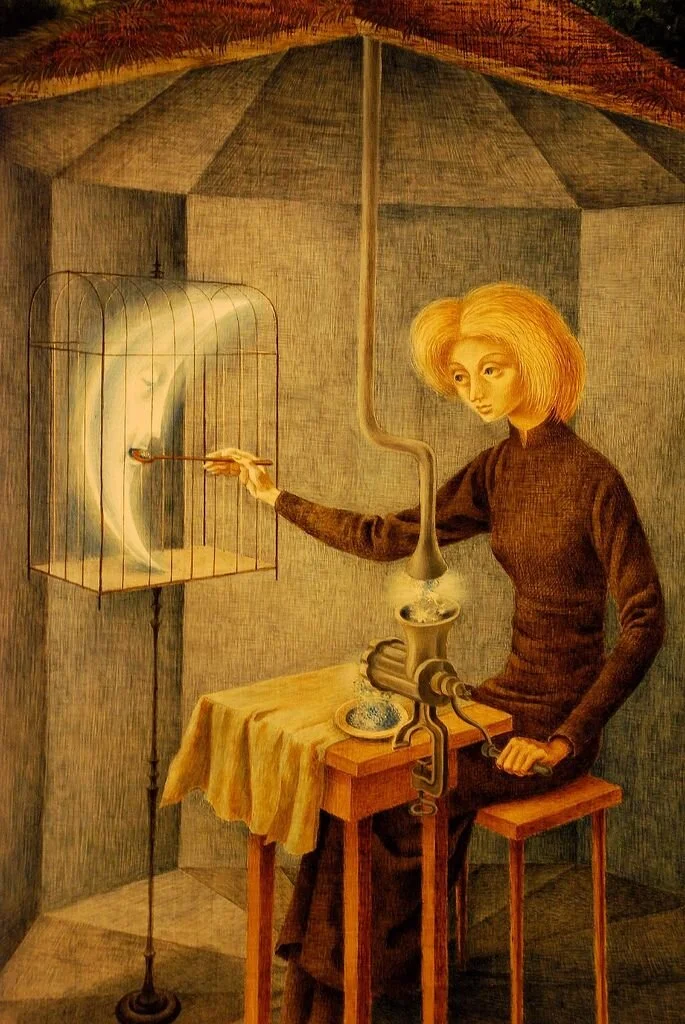1.
I’ve seen A Clockwork Orange too many times. Which is to say that I’ve seen it more than twice.
2.
It’s important to see A Clockwork Orange more than once. Especially if, like me, you first saw it when you were a teenage boy. God knows your appreciation of the film would be mired in infantilism.
3.
I saw A Clockwork Orange as a teen with a high school pal who’d rented it. We sat in his room and watched the movie, astonished from the start. I remember being impressed that he had a TV in his room with a VCR, which meant he could watch damn near anything without fearing his mother might catch him in the act of enjoying pornography or sensationalistic movies with heaps of violence and murky morals.
4.
We both loved the movie. Or what we understood about it. We’d taken Psych classes and had heard about Pavlov and his salivating dogs. My friend, once we finished A Clockwork Orange, insisted, “No one’s ever gonna make a classical conditioned dog outta me!”
Thus, we thought the movie was smart because it had a thing in it about what makes a person a person, and if you can control a person then are they really a person. Being teenage boys of the 1980s— a time just after, and still informed by, the 1960s’ and 70s’ fashionable pop revolutions— we adopted the movie as a sort of manifesto.
5.
Truth: we just liked the violence.
6.
I don’t doubt that if one is honest they’ll admit that the first third of A Clockwork Orange is more fun than the rest. The visuals are more stunning. But it’s hard not to notice how drab the scenery becomes once Malcolm McDowell’s character Alex is released from prison. Next to the oddball outfits of the Droogs and the décor of the Korova Milkbar, much of the film is ugly. Of course, the entirety of the film is ugly, at least as far as content. But to my teenage head, rape and “ultraviolence” were funny.
Look at these assholes
7.
The second viewing came not long after the first. Nothing to say about it.
The third viewing I don’t recall. Or the fourth. But somewhere around the fifth I started to feel that the movie was simple, stupid even.
Then I read the book.
Somewhat better
I read the book because, despite thinking the movie was simple, stupid even, I wanted to see if the book was better, operating at that time under the impression that books are always better. This is not true, but don’t tell that to a literature hungry young adult. You’ll crush their curiosity.
The book is better, sorta. The book displays a lot of stuff that I’d later come to love, like linguistic play and obscure yet engaging storytelling. Plus, it has a glossary, so the Nadsat language is easier to absorb. But I have to admit that the visuals, at least in parts of the film, stay with me more than anything in Anthony Burgess’s book. Save for one thing: Stanley Kubrick— either because he didn’t read the full version of the book or he didn’t care— cut the last chapter of Burgess’s novel. The last chapter subverts the whole story. Ending otherwise, the movie makes a point about conditioning, but it misses a sly idea from Burgess about the inevitably of change, how time will condition us without outside intervention. Or something. I dunno. . . I just remember being more excited by an extension of the story that the movie ignored. It got me to rethink the movie, which only made it seem sillier.
8.
Maybe it’s because, somewhere around my fifth viewing of A Clockwork Orange, I’d seen Paths of Glory, The Killing, Full Metal Jacket, and Dr. Strangelove, all of them directed by Kubrick, all of them 100xs better than A Clockwork Orange. Those movies made this other thing by Kubrick seem like a curiosity, a near miss, an exercise in style without much more behind it. Which is when I started to think that maybe A Clockwork Orange is not a bad movie, or even a stupid one, but a movie to be admired for reasons outside of the edgy bullshit or the easy moral. Maybe it should be viewed solely for its aesthetics. That way, it’s sure to please. Because even those dreary post-prison scenes are fun to look at. At least compared to the shit in theaters these days. I mean, A Clockwork Orange is thankfully short of CGI and spandex superheroes.
No Avengers here
9.
The movie introduced me to Beethoven. I don’t know whether I ought to thank it or not.
10.
I love(d) punk culture. As a dumb teenage boy, I defined punk culture by the music, most of it simple three chord stuff. And angry. Snotty. At times loutish. I didn’t understand that “punk” could extend to cinema, visual art, literature. I thought it was solely understood by listening to The Ramones or the Sex Pistols. Then I heard London Calling by the Clash and realized that punk was not just 3 chord music played by non-musicians. It was attitude, aesthetics, ideas, and, weirdly, inclusion. And politics. But I wasn’t ready for Crass and Suicide and the Mekons, bands that didn’t exactly fit my limited definition of punk. And I sure as hell wasn’t ready to lump the Dadaists in there either.
But A Clockwork Orange was punk. Or at least punks loved it. It’s easy to see why: the style is close to what punks wore. And punks sometimes emulated the violence in the film. Hoo hum.
A punk girl— with a shaved head and piercings and Doc Martens and everything— called the movie “punk rock.” Later, I’d hear her call Sesame Street “punk rock.” She really opened my eyes!
11.
Thinking of A Clockwork Orange as punk both ups my appreciation for the film and lowers my appreciation for punk.
Actually, no. A Clockwork Orange is not punk. Punk is loose. Punk presents the opportunity for mayhem. Kubrick is too controlled, too precise a director. His movie is rigidly ordered shock. If anything, it represents the regimented lives my punk pals eventually adopted as they aged. Or maybe the punk aesthetic was always performative, as coordinated as Kubrick’s film.
12.
They say (whoever they are) that a good work of art is one that you can’t stop thinking about, so I suppose that makes A Clockwork Orange good. But truth be told: I don’t often think about it. I’m thinking about it today because I saw the book on my shelf buried behind some other pocket paperbacks I haven’t looked at in years. Which got me thinking about the movie. Which got me writing about the movie.
That I can’t land cleanly on Good or Bad is a good sign. I’m sometimes suspicious of work that is universally praised. I love it when asshole contrarians shit on Star Wars, however little criticism I have for the franchise (I liked the first two movies when I was a kid and don’t begrudge the world loving the movies and shows and toys). I don’t mind seeing my sacred cows slaughtered. Someone’s negative feelings on James Joyce won’t rob me of the pleasure of reading Ulysses (happy 100th birthday coming up!). I once posited that good art should divide. Anything that plays it too safe can’t be all that interesting. I may not be able to support those statements completely, but I’m not backing too far from them either.
But here’s another thing: A Clockwork Orange seems constructed to divide. As if the filmmaker knew it would offend some audiences and leaned in. Hardly as intentionally shocking for shock’s sake as Cannibal Holocaust, but nevertheless a film that Kubrick must’ve known would cause a stir. And that foreknowledge almost kills it for me. Maybe I’m too punk, too contrarian, too big an asshole, but when I know someone’s trying to ruffle my feathers my instinct is to deny them the pleasure. I see your easy provocation and it bores me.
But A Clockwork Orange is not boring. And I loved it at one point. Maybe my wrestling with it is as much about me and my efforts at a world-weary persona as it is about an imperfect film that seems increasingly callow the older I grow?
Goddamn, the movie exposed something about me! Fuck. . . I’ve no choice but to admit it that victory.
13.
Thirteen films better than A Clockwork Orange:
The Third Man
Naked
Miller’s Crossing
Barton Fink
Au Hazard Balthazar
Time Bandits
Full Metal Jacket
After Hours
I Heart Huckabees
The Cook, the Thief, His Wife, and Her Lover
The Conversation
Children of Men
Mulholland Drive




